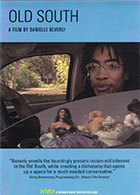
Old South 2013
Distributed by Women Make Movies, 115 W. 29th Street, Suite 1200,New York, NY, 10001; 212-925-0606
Produced by Danielle Beverly
Directed by Danielle Beverly
DVD , color, 58 min.
High School - General Adult
African Americans, Gardening, Service Learning
Date Entered: 11/19/2015
Reviewed by Monique Threatt, Indiana University, Herman B Wells Library, Bloomington, INBeverly’s feature-length documentary profiles a slice of Americana overlooked by mainstream media. This feel-good film reflects the fears and attitudes of two racially divided communities, and how through time and patience, work in a community garden slowly peels away layers of mistrust to reveal a people willing to create one community.
At the core of the film is community leader and activist, Hope Iglehart. Hope and her family have been entrepreneurs and residents of the Reese Street district in Athens, Georgia, for well over 100 years. The Reese Street district is one of the first black established neighborhoods to attract African American businessmen, doctors, and lawyers. However, in recent months and against the voice of the local citizens, rich and powerful developers demolish several historical houses in the district to accommodate for the construction of a large plantation-style residence for the all-white Kappa Alpha (KA) fraternity. The KAs do not wish to move to the Reese Street district, but are ordered to do so by the KA elders. The KAs have a legacy of displaying the confederate flag, and reenacting southern traditions via an annual parade in which the phrase “the South will rise again” is a standard battle cry.
The construction of the imposing fraternity house, mixed with seeping racial tension, propels Hope to seek the help of the local Historical Society to legally claim Reese Street a historic district. Reese Street thus becomes the first local historic African American neighborhood in Athens, and the eleventh historic African American district in the state of Georgia. With the historic designation, developers are no longer able to demolish homes, nor buy land without proper authorization. As the KAs are now permanent fixtures within a predominately African American community, Hope faces the dilemma to either include, or exclude them in community affairs. Karen Whitten, community activist and garden developer, devises a plan to use the garden as a tool to bridge the communication gap between the locals and the fraternity. The garden serves as a metaphor to heal race relations in a small community that could have otherwise had explosive results. All neighborhood residents are able to promote the growth of the community vis-à-vis the garden.
Although there are moments in the film that are cringe-worthy, it is clear that a psychological tier of superiority and inferiority is alive and well and living in Athens. For instance, the Mayor of Athens, a white female, belittles an adult black male during a town hall meeting, and the Vice President of the Kappa’s gives an uncomfortable interpretation of why the Civil War was fought—“the war was fought to keep slaves, which wasn’t to hurt black people...it was fought, because we wanted to keep an institution of oppressing black people…but we don’t hate black people…”— (the interpretation doesn’t get any better, and how very noble of him to not hate black people).
The film does eventually redeem itself. It is worthy to note that the KAs commitment to community service, namely, their participation in helping to develop the community garden, participation in Church activities, and the tutoring of local African American children, signals a change in growth and attitudes. This reviewer is pretty sure these young college boys are not trained, nor equipped to tutor anyone, but they do try their best. Still, an underlying mistrust exists between the tutors and tutees. Yet, the film offers a ray of optimism and opportunity for these two diverse groups to live in harmony. Only time will tell if the relationships are successful. This reviewer would like to see the filmmaker revisit the Reese Street district and document the community in a year. Highly recommended for discussion in classrooms focusing on the subject areas noted above.